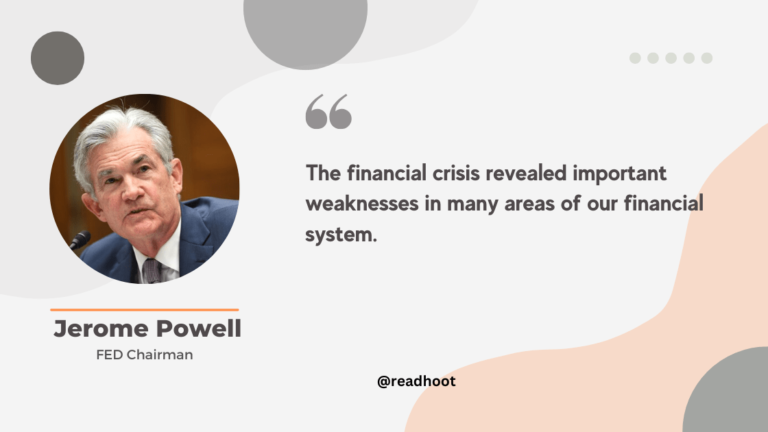Are you looking for the greatest Jerome Powell quotes on the economy, finance, economic justice, and many more? Yes, you have come to the right place! We have crafted the most comprehensive list of Jerome Powell quotes that focus on all areas that his role as a Federal Reserve Chair touches and much more.
Who is Jerome Powell?
Jerome Powell is one of the most respected investment bankers and attorneys in modern America. He is the current and the 16th chair of the US Federal Reserve since 2018.
Born in 1953, Powell attended Princeton University for a politics degree in 1975 and then Georgetown University Law Center for a Juris Doctor in 1975 before moving to investment banking in 1984. President Obama nominated Powell to the Federal Reserve Board of Governors in 2012 and then president Trump promoted him to chairman in 2018, check more things about Jerome Powell.
Read more: 50+ Bernie Sanders Quotes On Leadership, Education & Democracy
Interesting facts about Jerome Powell include the following;
- After his appointment to the Federal Board by President Obama, and promotion to chairman of the Board by President Trump, Powell was reappointed by President Biden.
- Powell is a perfect problem-solver and consensus-builder, skills that he laid bare during Obama’s presidency.
- During the COVID-19 pandemic, Powell received commendations for the actions that he took to contain the resultant financial problems.
- Powell believes in economic justice and fantasizes about a world where men and women earn the same for the same work.
- Bloomberg describes him as the “world’s most powerful central banker”
- He is the brains behind A View from The Fed: The Collected Works of Jerome Powell
Jerome Powell Quotes On the Economy
We need a national focus on increasing the sustainable growth rate of our economy.
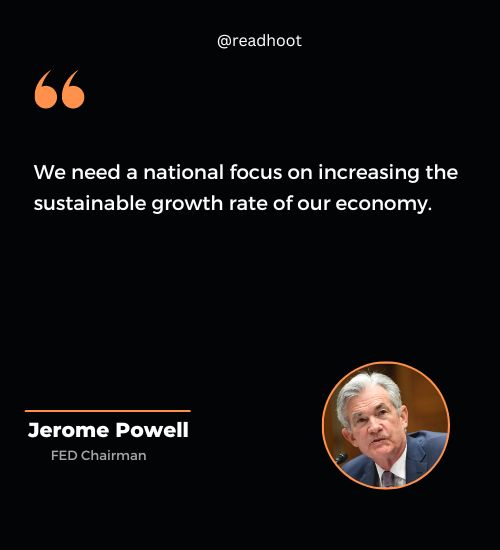
The Federal Reserve is committed to fulfilling our statutory mandate of stable prices and maximum employment.
In the long run, and even in the medium run, you wouldn’t want to bet against the American economy.
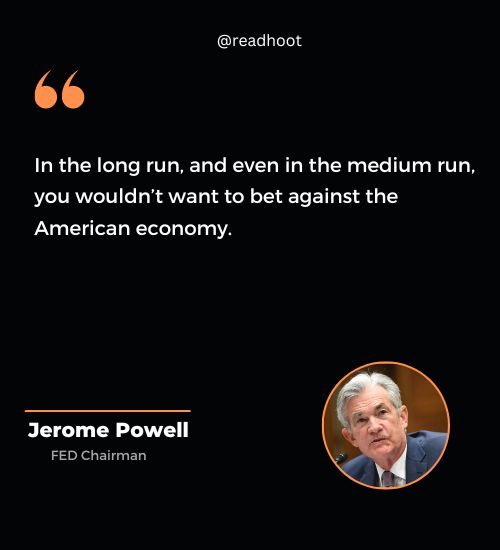
We were in a good place in February of 2020, and we think we can get back there, I would say, much sooner than we had feared.
There is no risk-free path for monetary policy.
The financial crisis revealed important weaknesses in many areas of our financial system.
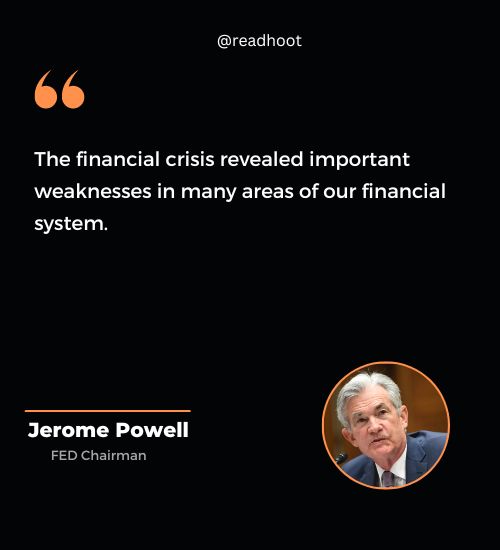
After the last financial crisis, the banks more than doubled their capital and liquidity and they’re far more aware and better at managing the risks they’re taking.
This economy will recover. And that means people will go back to work. Unemployment will get back down.
A digital currency issued by a central bank would be a global target for cyber attacks, cyber counterfeiting, and cyber theft.
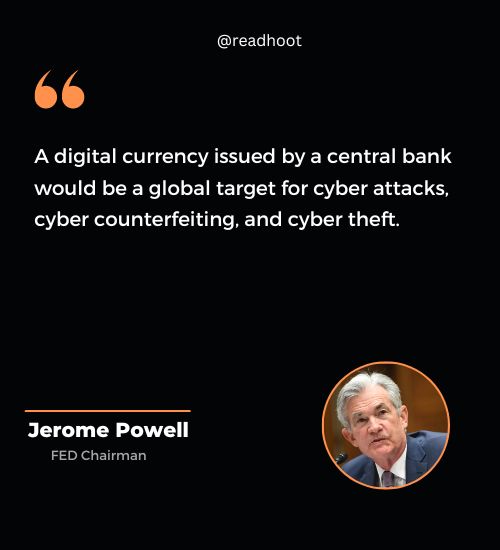
The Federal Reserve is committed to fulfilling our statutory mandate of stable prices and maximum employment.
Our obligation is to use our tools to support the economy, and that’s what we’ll continue to do.
Over time, low rates can put pressure on the business models of financial institutions.
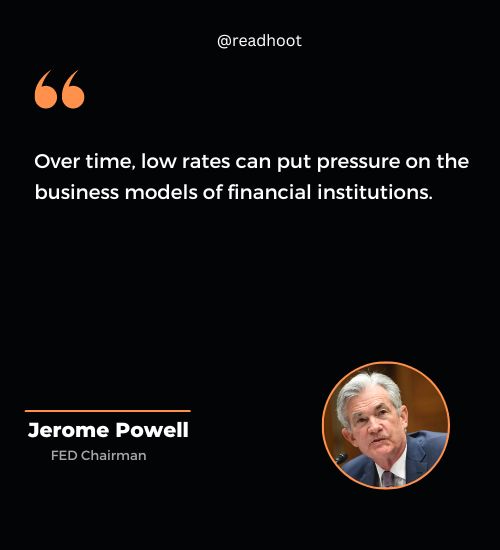
A digital currency issued by a central bank would be a global target for cyber attacks, cyber counterfeiting, and cyber theft.
Longer and deeper recessions tend to leave behind damage to people’s careers. And that weighs on the economy going forward.
We understand that America’s prosperity is bound up with the prosperity of other nations, including emerging market nations.
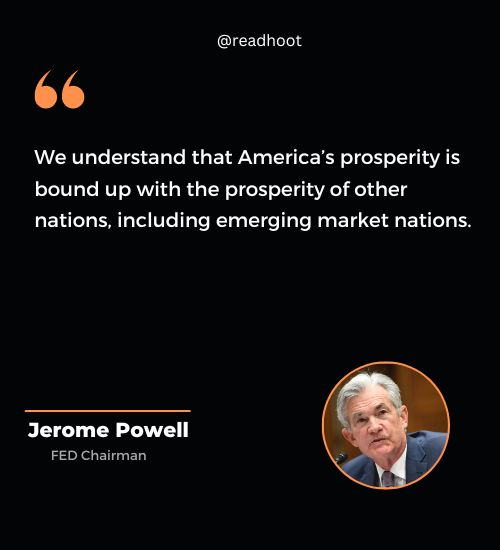
More regulation is not the best answer to every problem.
There is certainly a role for regulation, but regulation should always take into account the impact that it has on markets, a balance that must be constantly weighed.
I am unable to think of any critical, complex human activity that could be safely reduced to a simple summary equation.
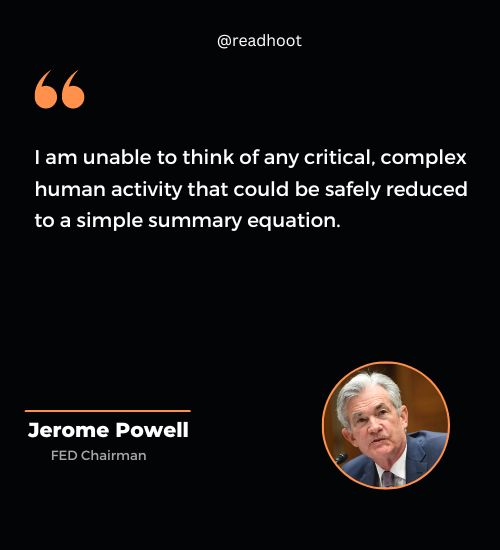
I think men and women should make the same for the same work, by and large.
The United States is the world’s reserve currency. The dollar is the world’s reserve currency. And we have the ability to borrow at low rates. We have the ability to service that debt.
Additional fiscal support could be costly, but worth it if it helps avoid long-term economic damage and leaves us with a stronger recovery.
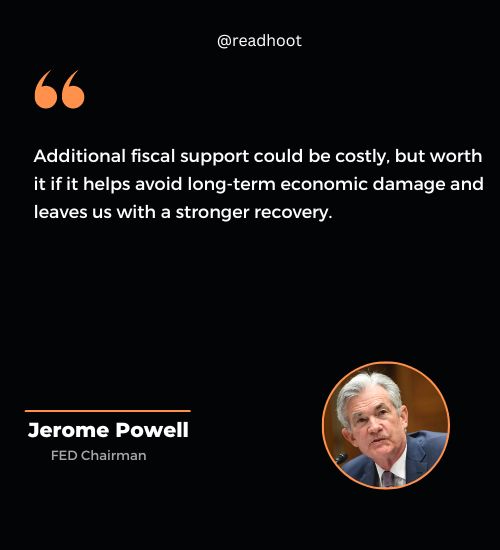
The main long-run contribution monetary policy can make is to provide a stable macroeconomic and financial environment.
We live in a world defined by the rapid pace of technological change.
No single housing finance institution should be too big to fail.
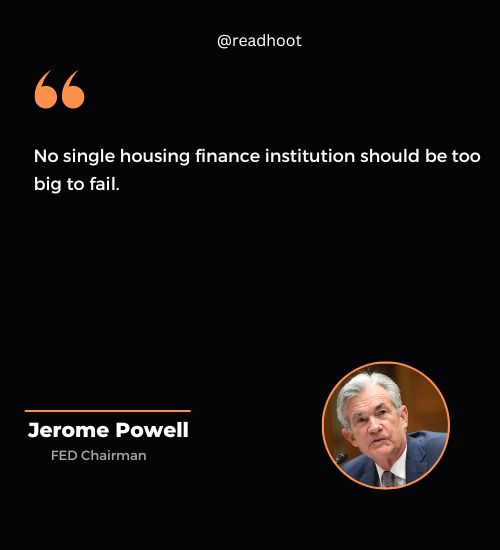
I support adjustments designed to enhance the efficiency and effectiveness of regulation without sacrificing safety and soundness or undermining macroprudential goals.
The banking industry has traditionally been characterized by physical branches, privileged access to financial data, and distinct expertise in analyzing such data.
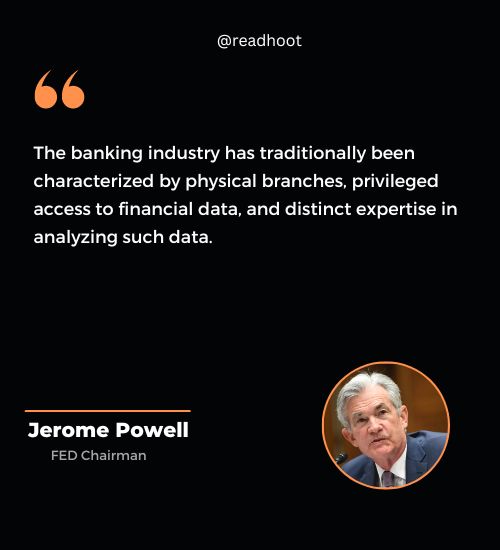
Until the public is confident that the disease is contained, a full recovery is unlikely.
The path ahead for the economy is highly uncertain and continues to depend to a significant degree on the path of the pandemic.
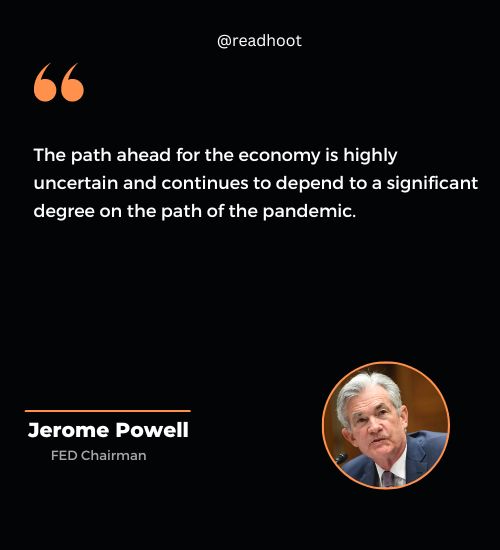
The banking industry has traditionally been characterized by physical branches, privileged access to financial data, and distinct expertise in analyzing such data.
As with so many sectors of the economy, technology is transforming the retail banking sector.
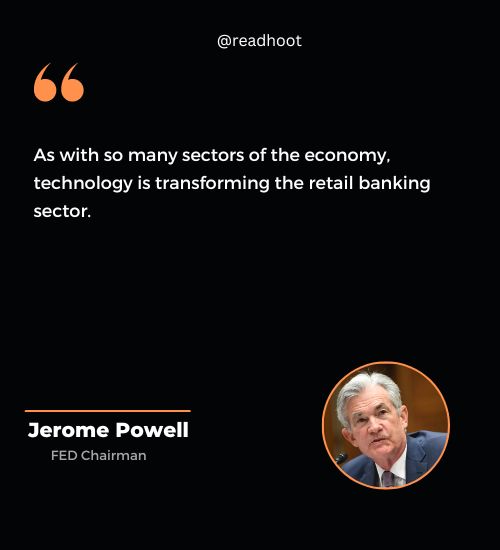
Jerome Powell Quotes On Inflation and Interest Rate
The financial crisis and the Great Recession posed the most significant macroeconomic challenges for the United States in a half-century, leaving behind high unemployment and below-target inflation and calling for highly accommodative monetary policies.
The expectation of gradual policy normalization should reduce the likelihood of outsized movements in interest rates.
If inflation were to move up in ways that are unwelcome, we have the tools for that, and we will use them. No one should doubt that.
When the time comes to raise interest rates, we’ll certainly do that, and that time, by the way, is no time soon [2021].
By purchasing and holding large amounts of Treasury securities and MBS, we put additional downward pressure on term premiums and so on long-term rates.
Regional interest rate differentials persisted until around the time of World War I and helped shape the attitudes of Americans living in western areas toward the nation’s financial system.
We have lowered interest rates to near zero in order to bring down borrowing costs. We have also committed to keeping rates at this low level until we are confident that the economy has weathered the storm.
We need a system that provides mortgage credit in good times and bad to a broad range of creditworthy borrowers.
As with so many sectors of the economy, technology is transforming the retail banking sector.
Central banking often comes across as obscure and complicated, and we try to help the public understand what we do.
I think the law is clear that I have a four-year term and I intended to serve it.
No single housing finance institution should be too big to fail.
The financial crisis involved significant failures in the functioning, regulation, and supervision of OTC derivatives markets.
There is clear empirical evidence that the response of EME financial markets to different shocks, including changes in U.S. interest rates, depends importantly on the state of economic fundamentals in the EMEs themselves.












